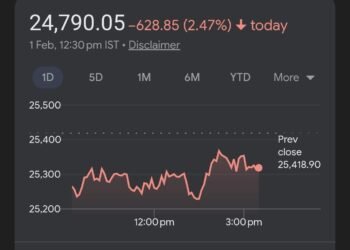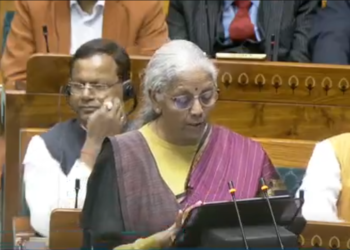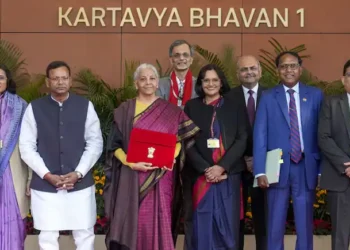The Modi government’s decision to exclude the Chief Justice of India from the CEC selection panel has sparked a legal and political storm. Rahul Gandhi’s dissent note warns of executive overreach—will the Supreme Court intervene?
BY PC Bureau
Rahul Gandhi Raises Alarm Over CEC Appointment, Calls Modi Govt’s Move a Violation of SC Order
A day after Gyanesh Kumar’s appointment as the new Chief Election Commissioner (CEC), Lok Sabha Leader of Opposition (LoP) Rahul Gandhi strongly opposed the process, sharing a dissent note he presented to Prime Minister Narendra Modi during the selection committee meeting.
Taking to X, Gandhi emphasized that an independent Election Commission, free from executive interference, is crucial to safeguarding India’s democracy. He criticized the government’s decision to exclude the Chief Justice of India (CJI) from the selection committee, a move that contradicts a previous Supreme Court directive. “By violating the Supreme Court order and removing the Chief Justice of India from the committee, the Modi Government has exacerbated the concerns of hundreds of millions of voters over the integrity of our electoral process,” he wrote.
During the meeting of the committee to select the next Election Commissioner, I presented a dissent note to the PM and HM, that stated: The most fundamental aspect of an independent Election Commission free from executive interference is the process of choosing the Election… pic.twitter.com/JeL9WSfq3X
— Rahul Gandhi (@RahulGandhi) February 18, 2025
Gandhi further condemned the timing of the decision, calling it “disrespectful and discourteous” for the Prime Minister and Home Minister to hold a midnight meeting to finalize the appointment when the legality of the process was set to be reviewed by the Supreme Court in less than 48 hours. “As the LoP, it is my duty to uphold the ideals of Babasaheb Ambedkar and the founding leaders of our nation and hold the government to account,” he asserted.
ALSO READ: Barish Sharma’s Political Rise and Fall: A Legacy of Violence and Controversy
The controversy stems from the enactment of the Chief Election Commissioner and Other Election Commissioners (Appointment, Conditions of Service, and Term of Office) Act, 2023. This law replaced the previous system—where the CJI was part of the selection panel—with a new three-member committee comprising the Prime Minister, the Union Home Minister, and the Leader of the Opposition in Lok Sabha. The move has been widely criticized for giving the executive greater control over the selection process, potentially undermining the Election Commission’s neutrality.
ALSO READ: Barish Sharma’s Rise and Fall: A Legacy of Controversy
Meanwhile, a case challenging the new appointment process is currently pending before the Supreme Court. The petition, filed by Congress leader Jaya Thakur, questions the constitutional validity of the 2023 Act, arguing that it contravenes the Supreme Court’s earlier judgment in the Anoop Baranwal case, which emphasized the inclusion of the CJI in the selection panel. A bench comprising Chief Justice Sanjiv Khanna and Justice P.V. Sanjay Kumar is set to hear the matter. The Supreme Court has indicated that any appointments made under the new law will be subject to its final verdict, raising further uncertainty over Kumar’s tenure as CEC. Legal experts and opposition leaders argue that the government’s move preempts judicial scrutiny and could set a dangerous precedent for the independence of constitutional bodies.
Gandhi’s dissent underscores growing concerns over the autonomy of India’s electoral institutions, with critics warning that increased executive influence over the selection process could erode public trust in free and fair elections.













